“Mr. Coelho’s talent as a writer and his exceptional ability
to touch the lives of men and women across boundaries
and cultures makes him a powerful Messenger.”
UN Secretary-General Ban Ki-Moon
“This book, telling the story of a shepherd boy named Santiago, is about following your dreams,” said my Chinese friend. “Its message is powerful and simple: If you really believe in something, the whole universe conspires with you to achieve it. Take it to Beirut with you and read it.”
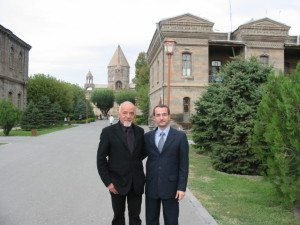
Thousands of miles away from home, I was being offered a book I had on my own bookshelf, but had never read. Thus, on September 10, 2000, in Shenyang, China, my story with The Alchemist had begun.
As I was reading the book on the plane on my way back, I felt I could easily relate to the message of the novel: We had to go to far away lands, sometimes, to find treasures hidden in our backyard.
“I will translate this book to Armenian one day,” I thought, as the captain was announcing our arrival at the Beirut International Airport.
***
In October 2003, I started interviewing writers, artists and academics from around the world for the Lebanese-Armenian daily newspaper Aztag. “My first interviewee ought to be the author of The Alchemist,” I thought.
I emailed the author’s literary agency requesting an interview and, much to my surprise, I received a positive response. One of the top best-selling authors of the world had agreed to share his thoughts with a small community newspaper in Beirut.
The last question I asked Paulo Coelho was whether there were plans to translate The Alchemist, to Armenian. Back then, the book had already been translated to 54 languages. I felt it was time Armenians read the book in their mother tongue. He expressed hope that a publishing house would be interested in such an endeavor.
On Oct. 30, the interview appeared in Aztag. A few days later, I received a phone call from the Hamazkayin publishing house in Beirut. “We would love to have The Alchemist translated to Armenian. Would you be interested in translating it?” asked the voice on the other side of the phone.
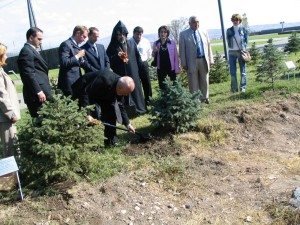
I remembered my Chinese friend, Paulo Coelho’s quote about wanting something, and the wish I had expressed on my flight to Beirut. When we obtained the rights from Coelho’s literary agency, the shepherd boy Santiago in me was thrilled.
A year later, I was holding the first copy of my translation of The Alchemist. I flipped to page five where the “Translator’s Foreword” appeared, titled “the 55th [translation].” There, I had told my story with the book, without knowing it was not yet over. In a few hours, I had a plane to catch to Yerevan, where I would be joined by Paulo Coelho himself for a series of book events.
***
A large crowd of journalist, photographers and cameramen had gathered right outside the VIP Lounge at the Zvartnots Airport in Yerevan. “Where is Khatchig?” asked the man in dark clothes coming out of the VIP room. As I approached and we embraced, he made his first statement to the media: “He is too young to be a translator.”
“The Pilgrim has arrived to the land of Pilgrimages: to yerkir Hayastan,” wrote the daily Hayastani Hanrapetudyun a few days later.
As Armenia was bracing for the greatest literary events in its history, Coelho was busy discovering a country he had heard so much about. He had an Armenian driver, he went to Armenian restaurants in Paris, and had met many Armenians in the Diaspora and heard so much about their heritage and their country, and now, he was on a pilgrimage to discover both, first-hand.
We strolled in the streets of Yerevan that night. The following day, when he was asked about his impressions of the city, he said that the buildings and streets are almost the same everywhere around the world. “It is the people that make the difference, and my best impression was the people,” he added.
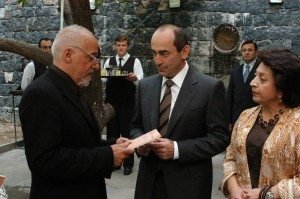
A few months before his arrival, as we were preparing the program of his week-long visit, Coelho’s literary agency stressed that the author wanted to spend time with the people, with his readers, and that official meetings had to be kept to a minimum. We ended up including lunch with the president of Armenia Robert Kocharian at the Parajanov Museum, a visit to the Catholicos of All Armenians Karekin II at Etchmiadzin, and a meeting with the Minister of Culture Hovig Hoveyan in the program.
***
On Oct. 6, 2004, the book-launching event dedicated to the translation to Armenian of The Alchemist took place at the Writers’ Union Great Hall. Organized by Hamazkayin and the Writers’ Union of Armenia, the event was a huge success. The hall was packed with people hours before the event, and hundreds of latecomers waited outside, pushing at the gates that were closed because the hall couldn’t handle any more people.
In my introductory speech, I told my story with The Alchemist, beginning, as always, in China. I said, “Just like Paulo, I, too, believe that we have to go to far away lands, sometimes, to find treasures hidden in our backyard. And for us, Diaspora Armenians, whose grandparents had to walk through deserts in much harsher conditions than Santiago did in his quest, the real treasures are hidden here, in Armenia, whether we realize it or not.”
In his speech, Coelho, whom Publishing Trends had declared the world’s number one best-selling author a year before, also alluded to the Armenian Diaspora. He said he believed that one day, Diaspora Armenians would return, like rain, to the land of their ancestors, bringing with them all that they have learned and accomplished.
“At the Writers’ Union Hall there was no room to cast a needle,” wrote the weekly Yerkir in its coverage of the event. “We cannot recall any other time when that hall was packed like that.” In its history, the Writers’ Union had witnessed such an event only once, and that was during the visit of William Saroyan to Yerevan, wrote Grakan Tert.
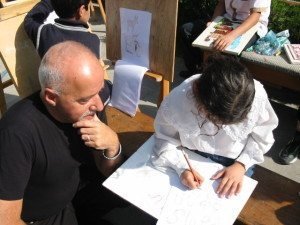
Coelho’s second meeting with Armenian readers came two days later at Yerevan State University. Some 900 people packed the hall, with many sitting on the floor or leaning against the walls. Coelho said he did not want to give a speech and, instead, invited 10 students to the podium and gave them each a chance to ask a question.
I was translating Paulo’s answers to Armenian. At one point, replying to a question on his most recent novel Eleven Minutes, Paulo started talking about sex. While I was having difficulty translating words like “masturbation,” “orgasm,” “penis,” and “vagina,” and blushing every now and then, the audience was having a blast. Rarely, if ever, had a speaker talked so openly about sex on that podium.
Asked whether at some point he would write a novel on Armenia, Coelho said he never plans in advance what to write about. He compared himself to a sailor who sets out without having a specific destination. “I do not know if I will write a novel about Armenia,” he said. “But Armenia wrote a novel in my heart.”
A day later, the daily Azg wrote: “From the meetings of Paulo Coelho with the public in Yerevan, it became clear that it is not true to say the Armenian reader has became indifferent to literature.”
***
In the following days, Coelho lay wreaths at the Armenian Genocide memorial, visited the Genocide Museum, and planted a tree at the memorial garden in Dzidzernagapert. He also visited Oshagan on Holy Translators’ Day, and lay a flower on the tomb of Mesrob Mashdots, the creator of the Armenian alphabet.
He was particularly impressed by the fact that the Armenians sanctified their translators, who enlightened their people after the alphabet was discovered. He said he had toured the world and had never encountered such a practice. Coelho later wrote an article, syndicated in newspapers around the world, on his visit to Armenia and specifically his impressions from the Holy Translators’ Day. The article later appeared in one of Coelho’s books, Like the Flowing River. Recounting his experiences in Oshagan, Coelho wrote:
Today is 9 October, 2004. The town is called Oshakan, and Armenia, as far as I know, is the only place in the world that has declared the day of the Holy Translator, St. Mesrob, a national holiday and where they celebrate it in style. As well as creating the Armenian alphabet (the language already existed, but only in spoken form). St Mesrob devoted his life to translating into his mother tongue the most important texts of the period, which were written in Greek, Persian or Cyrillic. He and his disciples devoted themselves to the enormous task of translating the Bible and the main literary classics of the time. From that moment on, the country’s culture gained its own identity, which it has maintained to this day.
The Holy Translator. I hold the flower in my hands and think of all the people I have never met, and perhaps may never have the opportunity to meet, but who, at this moment, have my books in their hands, and are doing their best t remain faithful to what I have tried to share with my readers. I think, above all, of my father-in-law, Christiano Monteiro Oiticica (profession: translator), who is today in the company of angels and of St. Mesrob, watching this scene. I remember seeing him hunched over his old typewriter, often complaining about how badly paid translation was (and, alas, still is). He would immediately go on, though, to explain that the real reason he translated was because he wanted to share a knowledge, which, but for translators, would never reach his own people.
I say a silent prayer for him, for all those who have helped me with my books, and for those who have allowed me to read books to which I would never otherwise have had access, thus helping—anonymously—to shape my life and my character. When I leave the church, I see some children writing the alphabet with sweets in the shape of letters and with flowers and more flowers.
When man grew ambitious, God destroyed the Tower of Babel, and everyone began to speak different tongues. However, in His infinite grace, he also created people to rebuild those bridges, to enable dialogue and the diffusion of human thought. This person, whose name we rarely take the trouble to notice when we open a foreign book, is the translator.
***
It was impossible to walk even a few steps on the streets in Yerevan without encountering an admirer of Coelho’s work asking for an autograph. He patiently autographed books for everyone. The utmost respect and love he showed to each and every reader was heartwarming.
Once, when we were visiting the Vernissage, the open-air art market in Yerevan, a painter in his 70s approached and hugged the author, giving him a painting as a gift. “Tell the world we love life, and we will prevail in the face of economic and political difficulties,” said the painter. His words, full of determination, reminded me of Paulo’s literary style: simple, but powerful, inspiring, and heartwarming.
Before we knew it, we were at the Zvartnots Airport again. “Partir, c’est mourir un peu” (Leaving is a bit like dying), say the French. “Heratsman mech el ga mi veratarts” (There is a return in every departure), says an Armenian song. I believe in the latter.
***
Today, Paulo Coelho’s novels have sold 100 million copies in 67 languages in 150 countries. Earlier this year, I conducted a second interview with Coelho, which was published in the March 25 issue of Jewcy Magazine (www.jewcy.com). I asked about his literary success. He said, “I can’t explain why people feel the way they do after reading my books. It’s personal to them. What I can say is that all my characters are mirrors of my own soul. I’m constantly trying to understand my place in the world and I have found that literature is the best way to see myself.”
A shorter version of this article appeared in the Oct. 28, 2006 issue of the Armenian Weekly.
The Armenian Weekly
Dec. 27, 2008


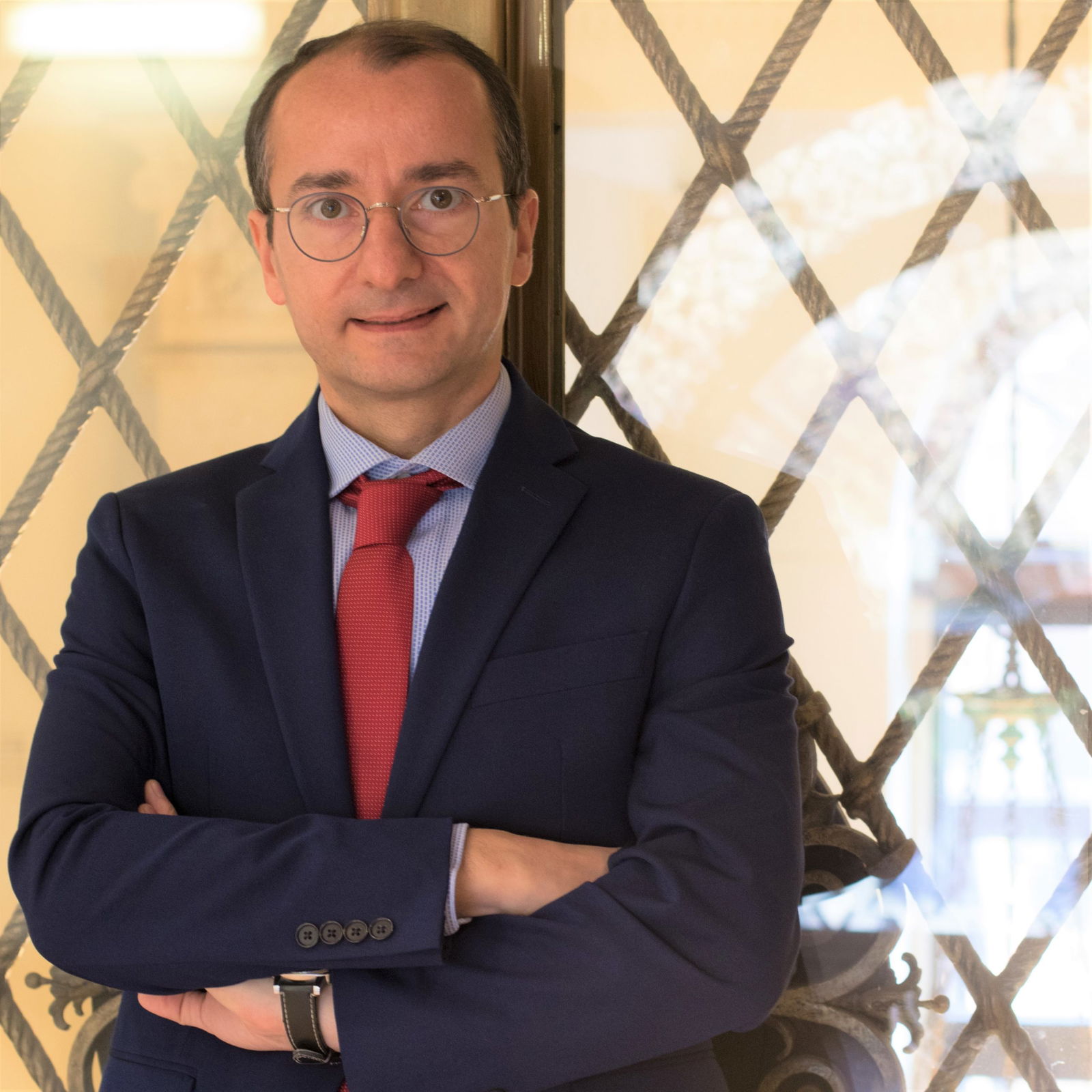
Paulo Coelho is an inspiration! Thank you for taking us on this journey!
Khatchig, beautifully told, Too, Paulo Coelho and Khatchig Mouradian, together, shall
have been a wondrous experience, for you, for our Haiastansis… Thanks for sharing
Paulo’s memorable visit to Haiastan with us. Manooshag